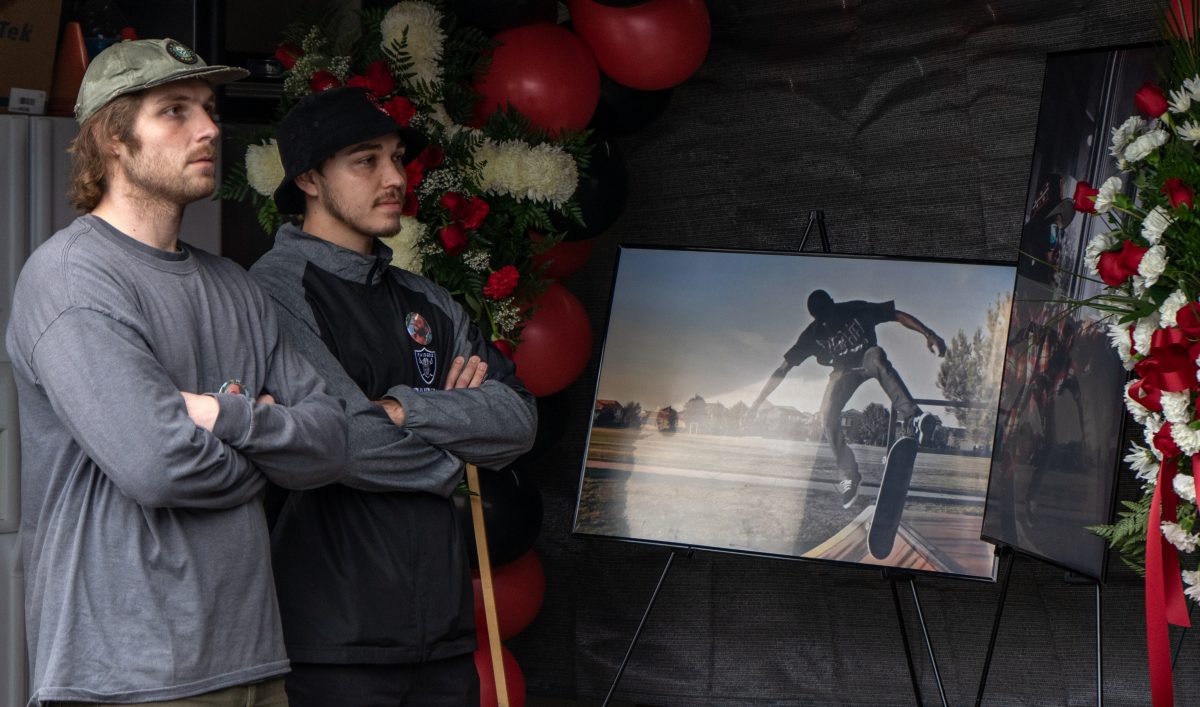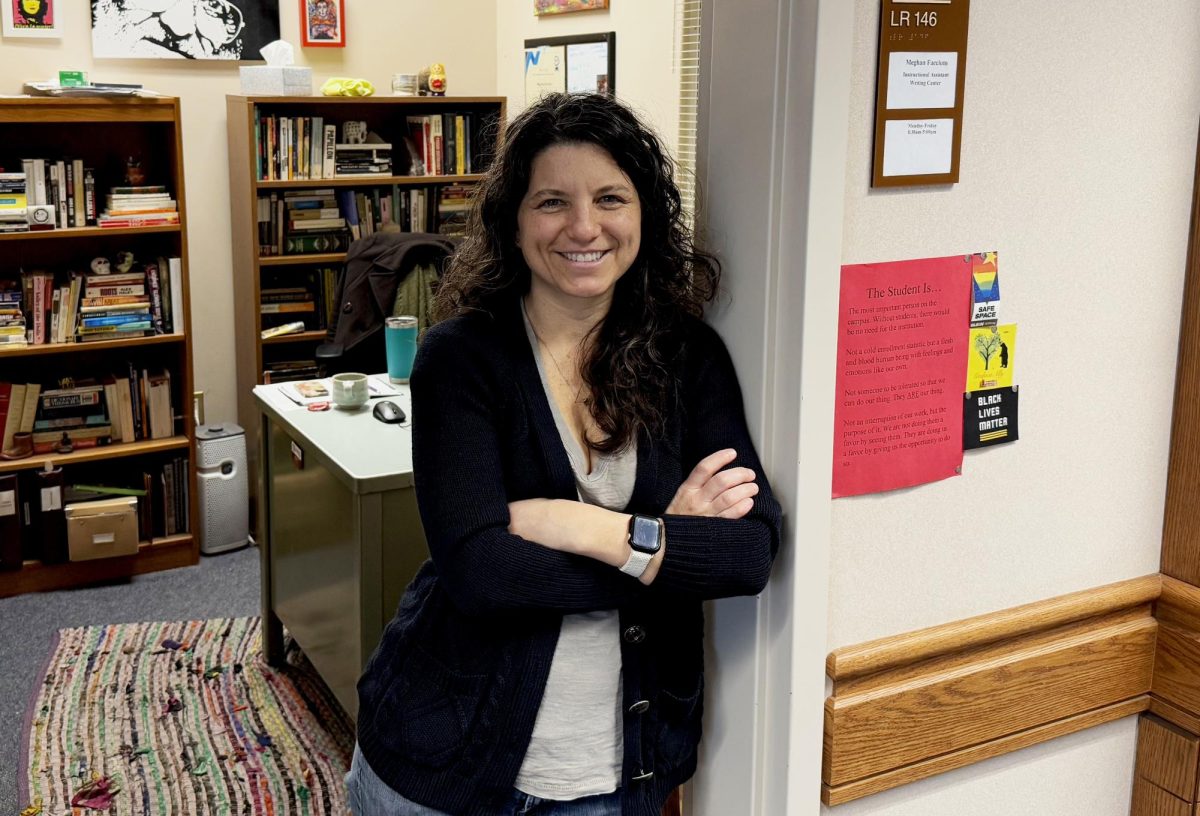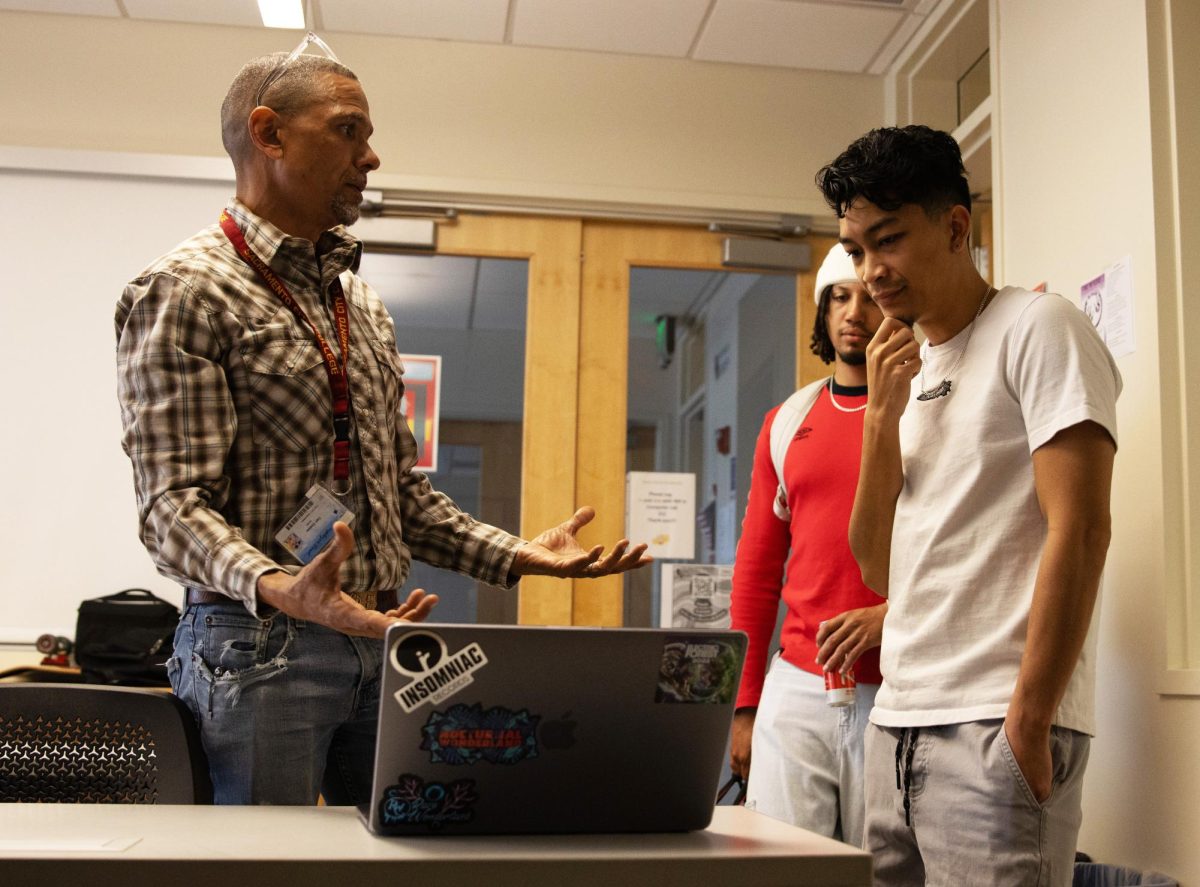Meghan Facciuto’s journey with Sacramento City College has come full circle. Nearly a decade after attending City College as a student, she has returned as an instructional assistant at the Writing Center, driven by a passion for helping students express themselves through writing.
After earning a bachelor’s degree in world literature and cultural studies from UC Santa Cruz and a master’s degree with Teaching English to Speakers of Other Languages (TESOL) certification from Sacramento State, Facciuto brought her diverse experiences back to City College. For her, the most rewarding part of working at the Writing Center is engaging in deep, meaningful conversations with students, allowing her to see the world through their perspectives.
The Express recently spoke with Facciuto about her journey from student to instructional assistant, and her passion for helping students to find their voice through writing.
Your journey with SCC has come full circle, from being a student to an instructor. How has your experience as a former student shaped your approach to teaching and tutoring at the Writing Center?
I attended SCC from the year 2000 to 2002, but I had such a formative experience here. I feel like SCC did the most in shaping me into the human being that I am out of all my experience in school. When I was a student here, I really loved that the student population of SCC was so diverse, and there were so many people from different countries [who] spoke different languages and ages. I got to interact with not just a bunch of 18-year-old teenagers, but people from all over the place, which helped me to challenge my critical thinking at a young age.
I transferred to UC Santa Cruz, there I kind of continued that, but there was still a part of me that always loved SCC. I don’t know that I would have had the same experience at any other colleges other than SCC. It was so special. Both of my brothers went there and have gone on and done things and said to me that SCC was really the place where they became an adult and learned about the world. `
When you first applied here at City College for the Writing Center as a student, was there someone who helped you to become the current version of yourself?
Lots of people. It was during the Great Recession, and so there were no jobs available at SCC, and so I was just volunteering. I worked at the Rise Program, which is in Rodda South now, and there were two counselors who ran that program. Their names were Keith Muraci and Juan LaChica, and the two of them were big mentors of mine, and were huge in shaping the way that I work now. They let me do all kinds of things there, I tutored students, and then I got to practice all kinds of things that I wanted to try. All they just said was yes to me. I would say all of them were wonderful guides for me. My whole goal was just to be like them.
You have a background in world literature and cultural studies. What initially inspired you to study those subjects?
I think when I was a student at SCC, I realized that I liked reading. I have loved reading since I was a kid. So I thought I’ll be an English major, then I can study literature. When I applied to schools, all of them had different programs. UC Santa Cruz was the one that I applied to, but they didn’t have an English major. They had literature, and I had to choose an emphasis, in which you can study Russian, Chinese or Latin American literature in translation. World literature and cultural studies was an option, and I chose it because, at that time, I sensed that English programs are very traditional.
That program opened my eyes completely, like literature from all over the world. You get to learn about the culture of that writer through their literature, which is amazing. And when I started my master’s in English, I realized how rare that is actually. I was lucky to go through all of these classes, I got to read Holocaust, Russian, Chilean and Mexican literature, which I found a really cool way to learn about culture and history that is different from reading a history book.
As someone with TESOL certification, what challenges do non-native English speakers face in academic writing, and how do you help them navigate those challenges?
I studied Spanish too and traveled there, where I had to use [the] Spanish language. I have been in a lot of situations where I felt very uncomfortable, and nervous because I realized that over the years, I’ve been using the wrong word or the verb. So I think maybe one of the challenges of learning another language that many students face is not just using the language and feeling confident.
Many students here at SCC are doing that while they’re getting acquainted with American culture, which can be confusing. Also, sometimes maybe the language that is in their mind transfers into their writing. They’ve had teachers over the years say this is wrong, or this is right, which can make them feel negative or confused. So I think for students like that, the struggle is just understanding why it happens and how to change it so that they don’t keep getting the message that it’s wrong when it is not. I think most of the time, it’s through revision, working on it and talking about it. But many students are kind of shy to use a center like this. So part of my goal is to try and invite students in, make them feel welcome and navigate them.
What is one particularly memorable conversation or breakthrough moment you’ve had with a student at the Writing Center?
Man, I can think of many, many, many. I would say not one particular but many experiences with students who are writing personal statements to transfer to universities. I think this is when I have had the most connection with students in those sessions because many times, people come in and they’re nervous because they’re sharing their personal life with me. I feel very privileged to be in that situation since I’m learning all kinds of things about their life, their upbringing and I often see students in those sessions who are very not sure that they can do it. And when I read the writing, it is great. Once we work on it together, they feel they’re growing more and more with confidence. It is such a special experience for me, because I always hear from them next semester, if they get into the school that they wanted to get into, and sometimes they contact me later and ask if I can write a letter of recommendation. Those ones, I think, are my most cherished moments, because it’s not all about writing, it’s a whole new experience.
What is one piece of advice you wish more students knew about becoming stronger writers, and how do you try to reinforce that in your tutoring sessions?
I would want students to know that we’re often taught that you’re either a good writer or you’re not, and I don’t think that’s true. I believe people who work hard on their writing, revising and getting feedback from other people tend to have faster writing improvement than those who don’t. Sometimes people view writing centers or tutoring as a deficit, but the strongest writers everywhere are people who have other people read their writing. So my hope would be that students know that you can improve your writing if you work on and get feedback on it.
If you could spend a day doing anything outside of work, what would it be and why?
I love spending time with my family. I would probably spend time with my daughter, husband or anyone in my family. But I also like to go to see movies by myself, because if I go to see a movie with my daughter, it’s usually a kid’s movie, and with my husband, it’s something he wants to see. What I love watching is what nobody ever wants to see. But I love it because it’s just a quiet time to go by myself, to eat popcorn and sometimes cry through and then go about my day. I like watching everything, anything that seems interesting. I love Tower Theater on Broadway because they always have art films and movies about topics that are not big, like Cinemark or Marvel movies.
Facciuto’s journey from student to instructional assistant at City College’s Writing Center is a testament to the power of education and mentorship. Her experiences have shaped her empathetic and supportive approach to teaching, inspiring students to find confidence in their writing and voices. Through meaningful conversations and dedicated guidance, she continues to impact the lives of countless students, helping them navigate academic challenges and realize their potential. Her story is not just about her growth but also about the transformative power of community and connection at City College.
This Q&A has been edited for length, clarity and flow.
Express Exchange is a Q&A series that highlights the people in the Sacramento City College community. Each conversation explores unique experiences, challenges these people overcame and perspective into what matters most in their personal journey. This series provides a space to connect and share meaningful experiences. Have an idea of someone for us to interview? Contact our editors at llentz.express@gmail.com and njeffery.express@gmail.com


































